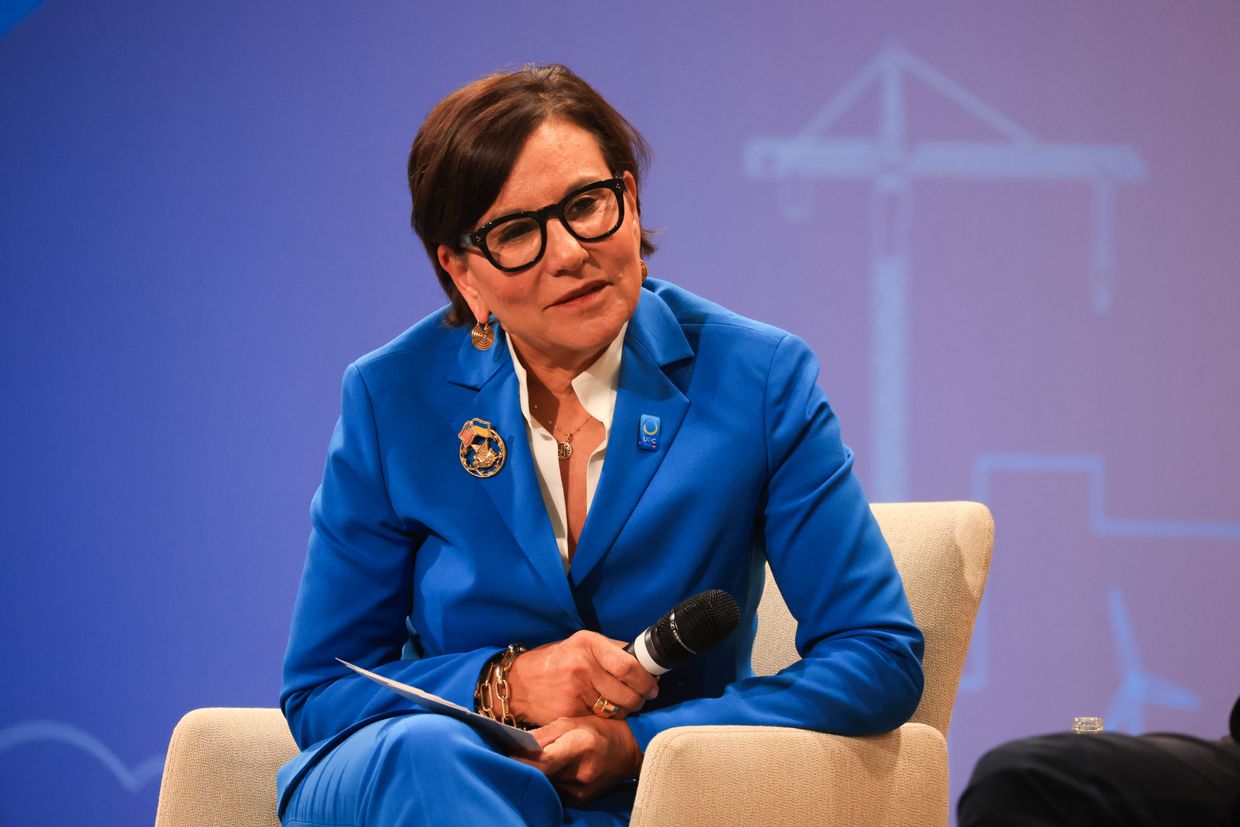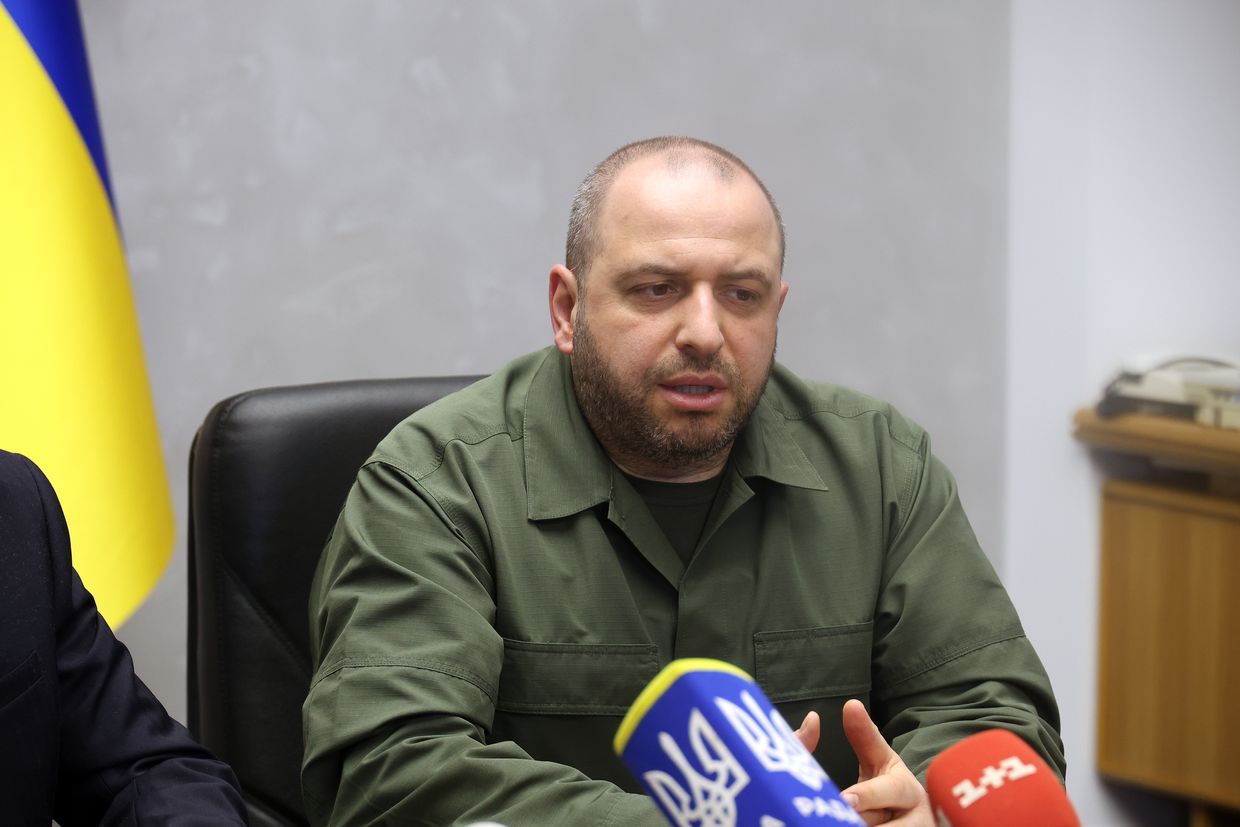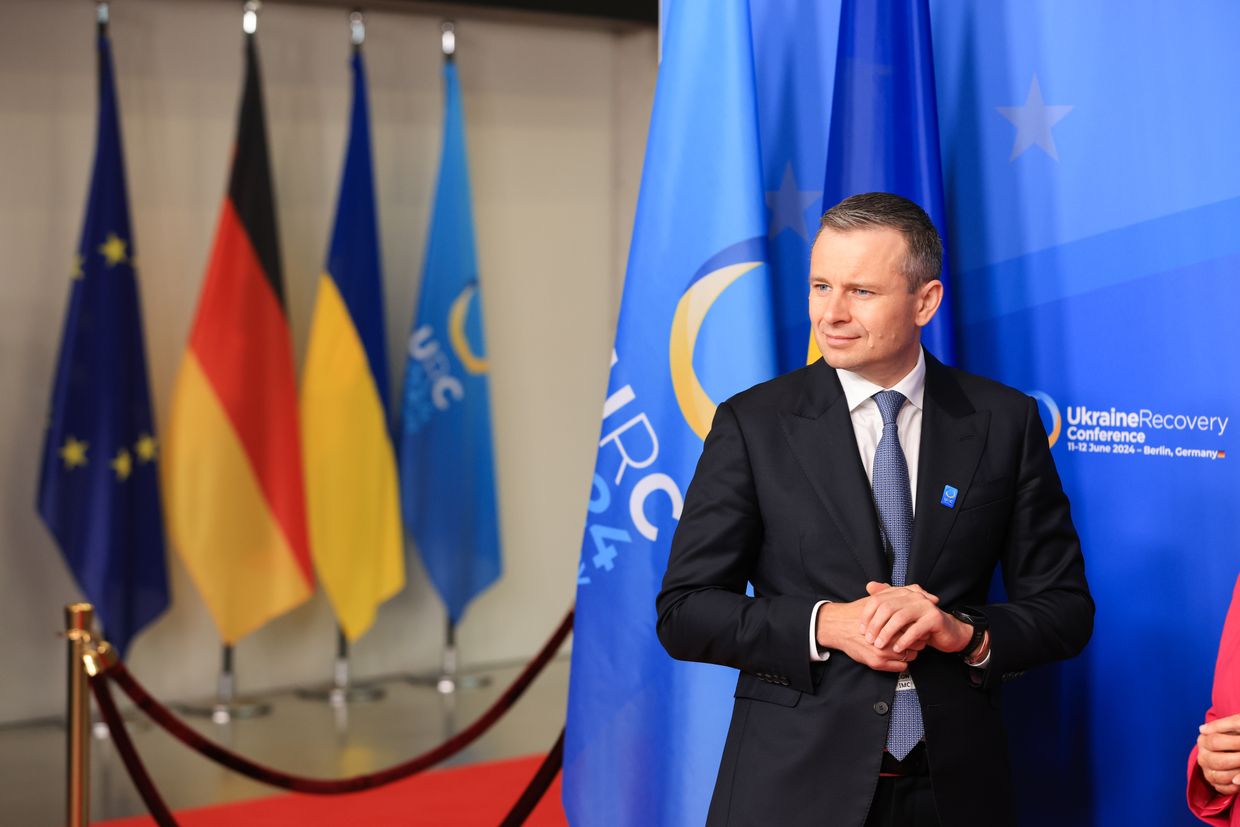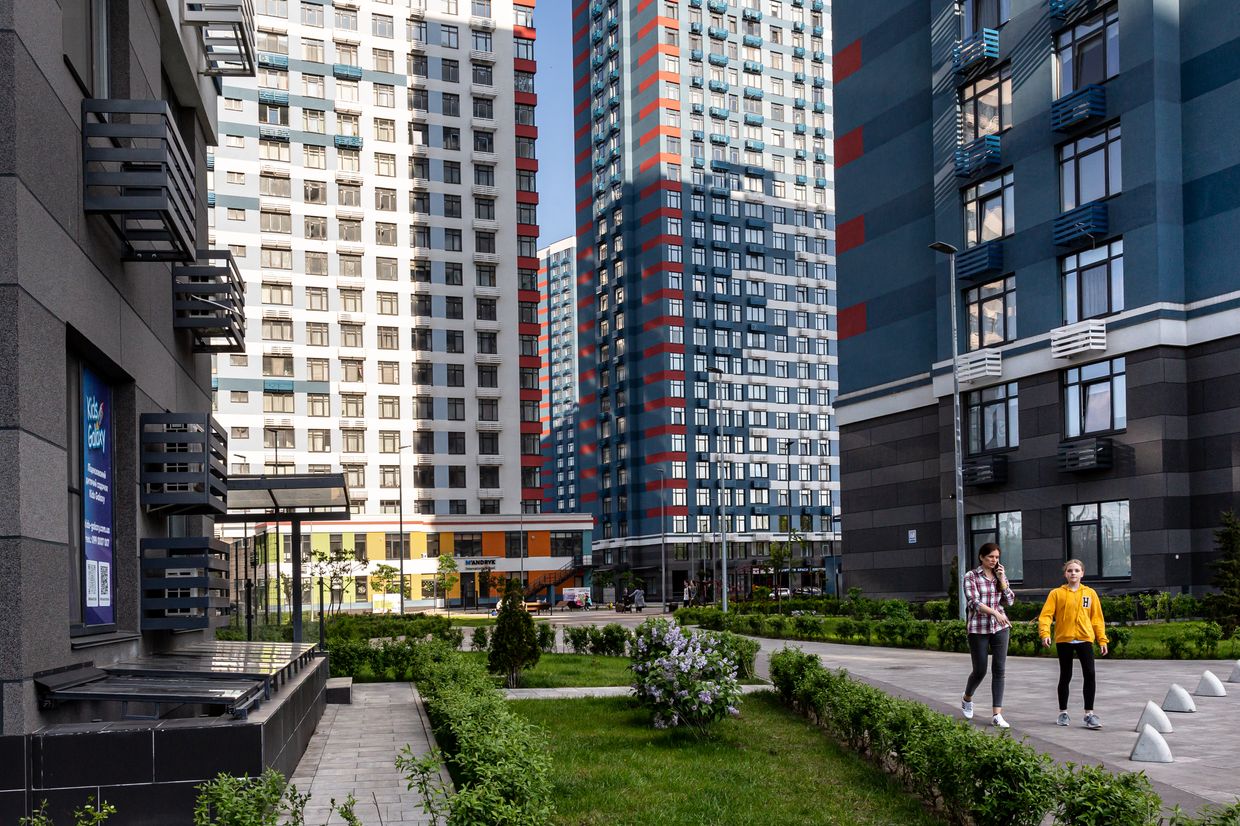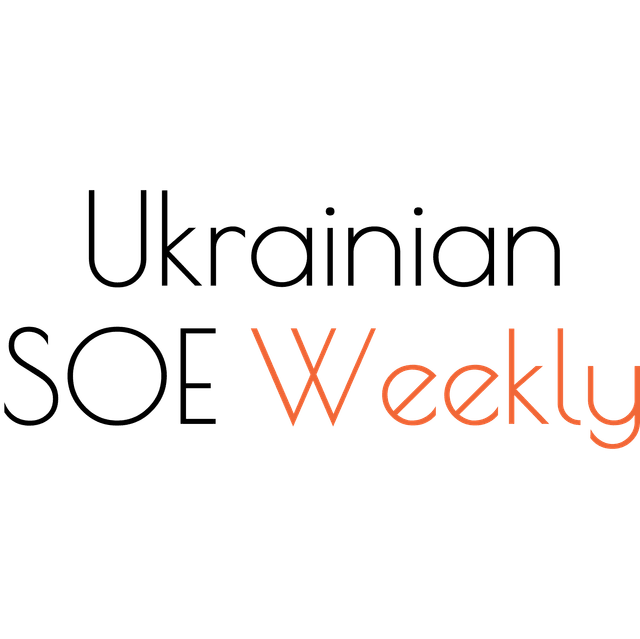Ukraine state-owned enterprises weekly — Issue 142

Editor’s Note: This is issue 142 of Ukrainian State-Owned Enterprises Weekly, covering events from July 21-27, 2024. The Kyiv Independent is reposting it with permission.
Energy sector
Ukraine increases natural gas reserves in underground storage to 10 billion cubic meters, Naftogaz Group reported on July 22. Over 2.5 billion cubic meters have been pumped into storage since the beginning of the season.
This pace “allows us to optimistically forecast the achievement of the plan, namely 13.2 billion cubic meters by Nov. 1,” Naftogaz Group’s CEO Oleksiy Chernyshov said.
As we wrote in Issue 126, on April 2, Ukrtransgaz reported the end of the 2023/2024 heating season and the start of a new season of gas injection into underground storage.
As we reported in Issue 137, as of June 17, Ukraine pumped about 1.6 billion cubic metres into underground storage, and the total volume of underground gas exceeded 9 billion cubic meters.
Energoatom got a 181 million-pound, five-year loan to buy nuclear materials, the company reported on July 23.
Deutsche Bank and Barclays Bank are providing the loan, which will be guaranteed by the U.K. government via its export credit agency U.K. Export Finance (UKEF), without a state guarantee by the Ukrainian government.
Energoatom will use this money to buy enriched and natural uranium hexafluoride from British company Urenco until 2035, with the possibility of extending the contract until 2043, the company explained.
Energoatom also currently supplies nuclear materials to Urenco under two contracts that expire in 2025, the release said.
Defense
Antonov and Boeing sign a memorandum on joint drone production. On July 22, Boeing, a leading U.S. aerospace company, reported that it signed a memorandum of understanding with Antonov to explore opportunities to collaborate on defense-related projects.
These include training, logistics support, and overhaul services for tactical drones used by the Ukrainian Armed Forces, which includes the ScanEagle (a small reconnaissance drone from Boeing’s subsidiary Insitu).
The companies will also explore opportunities for Antonov to provide engineering support to Boeing.
Boeing develops, manufactures, and services commercial airplanes, defense products, and space systems for customers in more than 150 countries.
As we reported in October 2023 in Issue 105, Antonov and the French company Turgis & Gaillard signed a deal on the production of the Aarok MALE (Medium Altitude Long Range) version of the combat drone at Antonov’s facilities. See Issue 105 for more detail.
As we wrote in Issue 114, during 2023, Ukrainian state-owned defense companies reported that they started manufacturing new weapons and signed cooperation and joint production contracts with various counterparts in NATO member states. See Issues 74, 79, 88,91, 97, 105, 108, and 111 for more detail.
Rheinmetall to build an ammunition plant in Ukraine. On July 24, Rheinmetall reported that it received an order from the Ukrainian government to fully build, equip, and commission an ammunition factory. The joint venture with a Ukrainian SOE was first announced in February 2024.
The intention is to start the ammunition production in Ukraine within 24 months. Together with Ukrainian Defense Industry (UDI), its Ukrainian joint venture partner, Rheinmetall will also be responsible for operating the plant, the company added.
As we reported in Issue 136, UDI and Rheinmetall opened the first joint armored vehicle repair and production workshop in Ukraine on June 10. See Issue 136 for more detail.
In Issue 88, we reported that Rheinmetall signed an agreement with UDI in May 2023 to set up a joint venture to repair tanks in Ukraine.
According to the agreement, the German side would hold 51% of the shares and have the management rights. The cooperation would focus on the maintenance and repair of armored vehicles in Ukraine, while preparations would be made for the construction of tanks.
As we wrote in Issue 108, the German-Ukrainian LLC “Rheinmetall UDI” (Rheinmetall Ukrainian Defense Industry LLC) was registered on Oct. 18, 2023.
Rheinmetall AG, headquartered in Düsseldorf, is one of the largest manufacturers of military equipment, weapons, and vehicle components in Europe.
The group consists of five divisions: Vehicle Systems; Weapons and Ammunition; Electronic Solutions; Sensors and Actuators; and Materials and Trade. With some 28,000 employees working in 132 locations worldwide, Rheinmetall’s sales were 6.4 billion euros ($6.9 billion) in 2022.
The group’s sales were distributed geographically as follows: Germany (34.1%), the rest of Europe (30.8%), Asia (18.4%), the Americas (8.2%), and other regions (8.5%).
Rheinmetall has a large institutional investor base (280 institutional owners and shareholders). As of Dec. 31, 2022, 69% of its shares were owned by institutional investors and 21% by private shareholders. The largest shareholders were Harris Associates LP (11.6%), Wellington Management Co. LLP (5.08%), Capital Research & Management Co. (4.99%), and BlackRock Fund Advisors (2.35%).
Infrastructure
Ukrzaliznytsia to receive a 43-million-euro grant from the EU to integrate Ukraine’s railway system with the EU’s, the company reported on July 23.
The project aims to improve the railway network and develop the 1435 mm gauge to ensure technological interoperability and increase the capacity of the railway infrastructure. With a total budget of 86 million euros, the EU would provide 42.95 million euros ($46 million) to Ukrzaliznytsia, the company said.
Approved on July 16, the project application implies:
- Introduction of a 1435 mm gauge on the Chop – Lviv section;
- Construction of a 1435 mm gauge and electrification on the Lviv – Chernivtsi – Vadul-Siret – State Border section;
- Development of a strategy for the reconstruction of the Lviv railway junction, with an eye towards expanding the 1435 mm gauge network of the Trans-European Transport Network (TEN-T) in Ukraine;
- Design and construction of a 1435 mm gauge railway (with electrification) on the Pavlove-2/Matyovtse – Uzhhorod section; and
- Electrification of the 1435 mm gauge on the Chop – Uzhhorod section.
As we wrote in Issue 127, on April 10, Ukrzaliznytsia reported that the Export-Import Bank of the United States (EXIM Bank) approved a loan program for the renewal of the company’s traction rolling stock fleet with 40 diesel locomotives manufactured by Wabtec.
Former Infrastructure Minister Pyvovarsky’s case sent to court. On July 25, the Specialized Anti-Corruption Prosecutor’s Office (SAPO) reported that, together with the National Anti-Corruption Bureau (NABU), it had filed an indictment with the court against former Infrastructure Minister Andriy Pyvovarsky and his former first deputy Volodymyr Shulmeister.
Pyvovarsky confirmed his indictment on his Facebook page.
As we reported in April 2023 (Issue 85), NABU and SAPO served Pyvovarsky with a notice of suspicion for allegedly causing over $30 million in damage to the state in 2015 by signing a ministerial order that allowed private companies to charge half the harbor dues at Pivdenny seaport.
Pyvovarsky argued that the suspicion was unfounded, because according to the Law “On Sea Ports of Ukraine,” proceeds from tonnage tax are distributed between the user of the port’s harbor (in this case, USPA) and the owner of the operational harbor (in this case, private company TIS). Back then, he posted the court’s bail of Hr 10 million ($243,000).
The charges against him were later amended, accusing him of causing $43.6 million in damages. Now, SAPO claims that Pyvovarsky’s and Shulmeister’s actions caused more than $49 million in damages.
In Issue 99, we reported that the HACC extended procedural duties, including pre-trial restrictions, for Volodymyr Shulmeister, former dirst deputy infrastructure minister. As we wrote in Issue 82, in April 2023, the HACC imposed a measure of restraint on Shulmeister, including a bail of Hr 4 million ($97,000).
As we also reported in Issue 99, SAPO announced that the pre-trial investigation was completed and the NABU detectives were instructed to open the case file to the defence for review.
For a detailed overview of the Pyvovarsky case, see SOE Weekly’s Issues 76, 77, 79, 80, 82, 83, 85, 88, 98, 99, and 102.
Confiscation of Russian assets, nationalization, and asset seizure
HACC seizes Russian oligarch Kononov’s chemical plant. On July 24, the High Anti-Corruption Court of Ukraine (HACC) granted a claim by the Justice Ministry to confiscate Vinnytsiapobutkhim, previously owned by the sanctioned Russian joint-stock company Nevskaya Kosmetika.
Nevskaya Kosmetika, previously owned by Viktor Kononov, is a Russian manufacturer of cosmetics, soaps, detergents, household chemicals, including such brands as Ushasty nyan, Mr Chister, and Sarma, according to the Justice Ministry.
According to the Security Service of Ukraine (SBU), the total value of the confiscated assets is over Hr 2 billion ($48 million). Kononov’s top management had tried to disguise Vinnytsiapobutkhim’s products as humanitarian aid to move them out of Ukraine and avoid confiscation, SBU said.
Ukrainian SOE Weekly is an independent weekly digest based on a compilation of the most important news related to state-owned enterprises (SOEs) and state-owned banks in Ukraine.
The contents of this publication are the sole responsibility of the editorial team of the Ukrainian SOE Weekly.
The SOE Weekly is produced and financed by Andriy Boytsun. Communications support is provided and financed by CFC Big Ideas. The SOE Weekly is not financed or influenced by any external party.
Editorial team: Andriy Boytsun, Oleksiy Pavlysh, Dmytro Yablonovskyi, and Oleksandr Lysenko.


